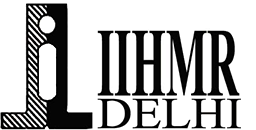Academics
Introduction:
Patient care depends on timely availability of drugs, consumables, and other materials. As compared to developed world, the supply chain in developing countries continues to be weak. In spite of the fact that 25 -35% of expenses are incurred on materials in health institutions, the well-developed techniques to manage supply chain as a scientific system are lacking. The total system requires critical information on need, demand, consumption, regulations, and related issues to be dealt with in an integrated manner. There is need to consider affordability, quality, and timely availability of materials. Further the efficiency of a health institutions partly consists in maximizing the quality of patient care per unit of cost for which supply chain management has an important role to play. With the fast-changing technology, there is an urgent need to acquire required skills to ensure timely supplies consistent with upgraded technology.
The three months certificate program has been designed to train the participants from developing countries for appropriate methods in demand estimation, procurement, stocking distribution, inventory control and maintenance of supplies and equipment’s.
Objectives:
On completion of the course, students should be able to:
- understand the supply chain management cycle right from production to consumption of materials
- deal with day to day problems and issues in supply chain production, transportation and warehousing
- understand supply chain management at primary, secondary and tertiary care facilities
- discuss and formulate action plans for reforms in supply chain management for efficient healthcare delivery
Course Benefits:
Organizations:
- Optimal use of resource and minimization of wastage of materials
- Enhanced patient satisfaction through availability of right supplies and equipment
Individual:
- Acquiring skills in appropriate methods for procurement, distribution and maintenance of supplies and equipment
- Participants will be able to make use of proper inventory management techniques to avoid over-supplies or stock out
- The knowledge acquired will be helpful in handling higher management responsibilities in future
Expected Outcomes after Completing the Course:
At the end of the course, the participants should be able to draw out a roadmap for improvement of supply chain management in their institution for providing efficient medical care at an optimum cost.
Target Group:
Professionals dealing with materials in various health institutions, Directors, Medical Superintendents, Store officers, HODs of various clinical and diagnostic services, Specialists and Senior Medical officers, Senior Nurses, Chief /Head Pharmacists, Healthcare Consultants, Pharmaceutical Industrial Mangers and PhD/MHA/MPH students.

